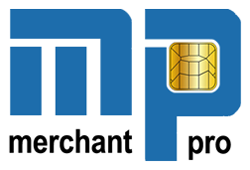Merchant Pro LLC
Europay Mastercard Visa
 Mastercard Visa (EMV) is the single-biggest thing impacting merchants today. In fact, it is the biggest thing to happen to the credit card industry in over a decade.
Mastercard Visa (EMV) is the single-biggest thing impacting merchants today. In fact, it is the biggest thing to happen to the credit card industry in over a decade.
Merchants can opt to ignore it, but then will be liable for any fraud related charges arising when a stolen credit card from a customer is utilized at their POS terminal. This technology has been the norm in Europe and Canada for years, and is just now becoming a forced initiative in the United States.
EMV compliance is easily attained with Merchant Pro; often with just getting the right training and right EMV terminal. Merchant Pro makes it a point to install and train on the credit card machine in person, which is greatly appreciated by most merchants.
4 Things you may Not know about EMV
- EMV, which stands for “Europay Mastercard Visa,” is a suggestion and not a requirement. While it is a strong suggestion; much like wearing a seat-belt while driving, not texting while driving, or not leaving your front door unlocked when you go shopping, it is nevertheless not a violation for a merchant to not adopt the technology and continue using his/her old credit card terminal.
- The transaction process often takes a little longer for EMV. This is especially true for dial-up, and yes, there are still quite a few merchants using dial-up to process credit cards. Adding to the wait time is the newness of EMV, and merchants/clerks not completely familiar with the process.
- Chip cards will work on both EMV and non-EMV terminals. They will just be “dipped” for EMV units and “swiped” for non-EMV units on swiped transactions. Key-entered transactions are not subject to EMV regulations; regardless of terminal type. Even for non-EMV units, the much talked about liability shift only occurs on stolen chip card transactions.
- Consumers lately are upset at merchants for using non-EMV compliant terminals. This is misplaced anger, as the “liability shift” has no effect on the consumer. In fact, consumers have zero liability for a breach if their credit card remains in their possession, and only up to $50 liability if their card is stolen and used to make illicit purchases. This is the same as it ever was!
PCI Compliance
The Payment Card Industry Data Security Standard (PCI DSS) is an information security standard for organizations that handle branded credit cards from the major card schemes.
The PCI Standard is mandated by the card brands but administered by the Payment Card Industry Security Standards Council. The standard was created to increase controls around cardholder data to reduce credit card fraud. Validation of compliance is performed annually or quarterly, either by an external Qualified Security Assessor (QSA) or by a firm specific Internal Security Assessor (ISA) that creates a Report on Compliance for organizations handling large volumes of transactions, or by Self-Assessment Questionnaire (SAQ) for companies handling smaller volumes.
What is interchange?
Interchange Optimization is a system in which a business processes a credit card payment correctly with all data required by the card associations in order to qualify for the least expensive interchange rate possible.
Interchange fees, which are set by card networks, are the fees paid by merchants to processors for processing card transactions.

